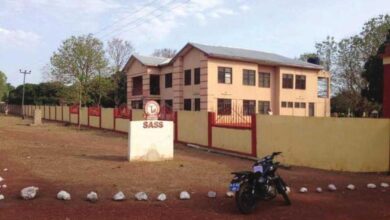Stop giving away Ghanaian citizenship for free

Accra-based legal practitioner and entrepreneur, Kofi Asmah, has called on government to reconsider the practice of granting Ghanaian citizenship to members of the African diaspora without economic obligations, arguing that the policy represents a missed opportunity for national development.
“Stop giving away Ghanaian citizenship for free,” Asmah urged in a post shared on Facebook on September 21, 2025.
He recalled the symbolic significance of the 2019 Year of Return, which culminated in a historic ceremony where 126 diaspora members were granted Ghanaian citizenship. According to him, available records indicate that Ghana has since extended citizenship to 624 people, including 524 at a ceremony in November 2024 and over 100 others in 2022.
While acknowledging the Pan-African spirit behind the move, Asmah argued that other countries have long realised that citizenship can be an economic tool.
He cited Portugal’s Golden Visa programme, which has generated more than €7 billion in foreign investment since its introduction in 2012, and Malta’s citizenship-by-investment scheme, which raises hundreds of millions of euros annually for infrastructure development.
“They understand what Ghana does not – citizenship must serve the state,” he said.
Asmah is advocating for a Ghanaian equivalent of the Golden Visa, insisting that applicants from the diaspora who seek Ghanaian citizenship should be required to invest in the country’s development.
“We need a bold pivot — away from free naturalisations towards a Golden Visa framework. If diaspora applicants truly love Ghana, they should be prepared to invest in Ghana’s future,” he said.
According to him, this would not undermine Pan-African ideals but rather strengthen them by tying nostalgia to concrete nation-building.
“By requiring diaspora applicants to invest in agriculture, housing, renewable energy, or Ghana’s bond market, we tie citizenship to nation-building. We transform a nostalgic homecoming into a concrete contribution,” Asmah explained.
He suggested that if the 750 new citizens since 2019 had each been required to invest at least $200,000, Ghana could have raised over $150 million in capital.
“Funds that could build schools, modernise hospitals, or stabilise our currency reserves,” he argued, adding that such an initiative would also help ease the housing deficit by enabling new citizens to acquire homes that could be rented locally.
“History matters. The scars of slavery and displacement cannot be ignored. But let us be honest: nostalgia will not strengthen or stabilize the cedi,” Asmah stressed.
He concluded that every free passport handed out without economic obligation represents a lost opportunity.
“A Ghanaian passport is valuable, access to ECOWAS markets, visa-free travel across Africa, and a respected global identity. Why give it away when we can use it as a vehicle to finance growth?”




